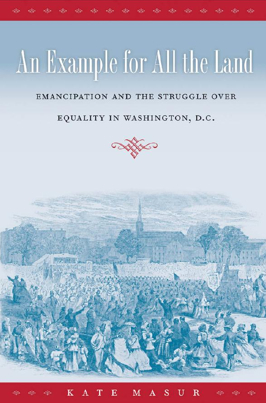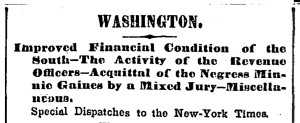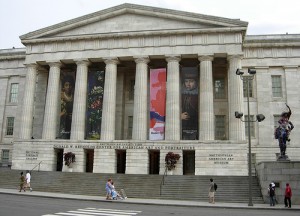
Kate Masur's "An Example for All the Land: Emancipation and the Struggle Over Equality in Washington, D.C."
The author of the first major study of Washington, D.C. during reconstruction in over fifty years spoke to DCentric recently.
Kate Masur, a history professor at Northwestern and author of “An Example for All the Land,” opined on racism, the Republican party and how D.C. developed a thriving African American middle class through good schools.
Why did you write this book?
I’ve been interested in D.C.’s history in part because it represented the juncture between the North and the South. I wanted to look at the period of emancipation and quintessential Northern/Southern issues, including the end of slavery, the meaning of emancipation and urban politics. In D.C., I could look at local and federal government in an interesting place that mixed both regions. That and there hadn’t been a good study of these issues in a really long time.
What were D.C. audiences most interested in?
D.C. was hungry for this sort of work. People have an episodic idea of history, so filling in the blanks and offering a narrative for this period is useful. Lots of people asked about African American politics and participation in a progressive coalition. This was a period of upheaval. You could really see what a difference it made that Congress had exclusive jurisdiction in Washington…the city was batted back and forth. It didn’t have control over its own destiny, this period really highlights that.
That sounds familiar. At the Portrait Gallery, when you read from the Reconstruction-era diary of a racist Washingtonian, I couldn’t get over how similar it sounded to certain anonymous comments I read on recent news articles.
Now, no one wants to own racism. You sort of wonder where all those comments come from if everyone is not racist…not to mention structural racism. In my book, white power brokers deliberately and repeatedly said that it wasn’t about race or problems with African Americans, it was just about good government. In fact, the policies they were seeking dramatically reduced the power of a newly biracial electorate. They made life more difficult for poor African Americans who had just become voters and found a certain amount of political power in D.C., so despite saying those policies weren’t racist, they had everything to do with reducing the power of black people.
Continue reading →







